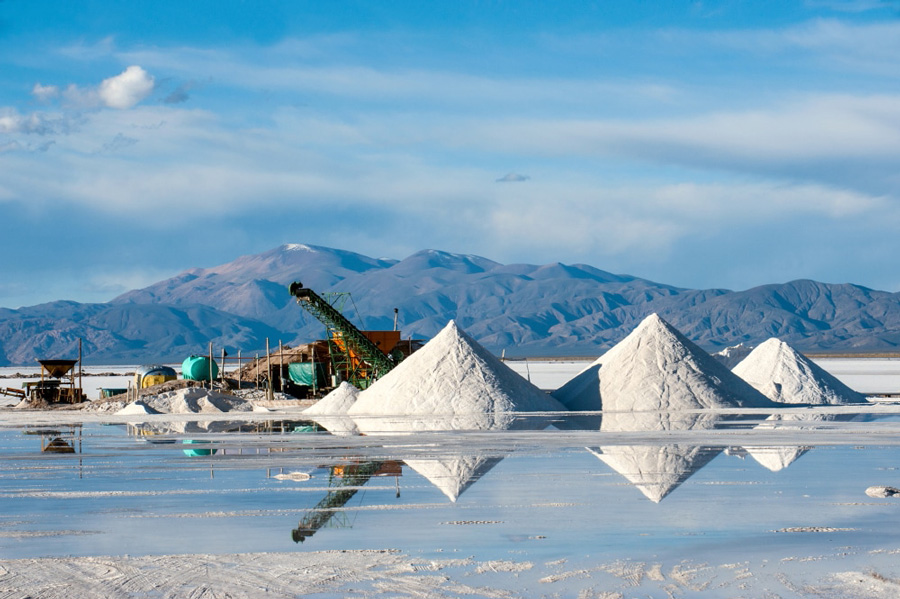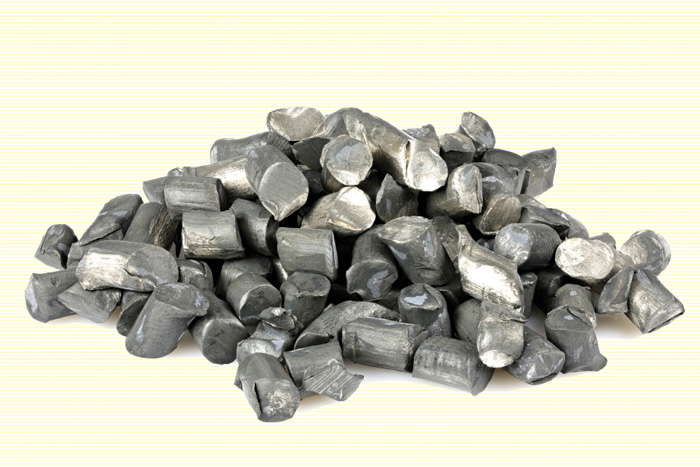Send this article to a friend:
September
06
2023
Send this article to a friend: September |
China's Appetite For Lithium Grows Despite Downturn In Prices
The report explained how China’s reach continues to grow in terms of minerals, particularly those critical to products that have major implications for the future. Faced with more restrictive foreign investment policies in the developed markets, Chinese firms are turning their attention to mining. This includes buying up key minerals like lithium and cobalt in locations such as Africa. S&P Global believes China will continue to build its influence over these minerals and the industries that rely on them as it works with governments keen on foreign investments across the developing world.  Key Chinese companies like Ganfeng Lithium and Tianqi Lithium continue to take steps to secure minerals vital for advanced industries. Another metal mining giant, Zijin Mining Group Co. Ltd., also plans to enter the lithium battery supply market. This only underscores the growing importance of lithium and other critical minerals to China’s long-term economic and technology plans. Short-Term Demand Looks Bleak In the short term, the Chinese lithium market continues to face a downturn. Indeed, demand for lithium battery materials has fallen significantly over the last few months. Much of this stems from the loss of enthusiasm for electric vehicles (EVs) in China. For example, lithium carbonate prices declined substantially in recent weeks, plummeting from approximately U.S. $42,000 per ton to U.S. $30,000 per ton. This decline followed a 75% price drop within the past six months, with prices reaching U.S. $22,750 per ton in late April.  Analysts attribute the drop to a reduction in lithium acquisition by lithium battery manufacturers due to a mounting surplus in inventories. This dwindling demand is also linked to a deceleration in consumer interest for EVs in China. Indeed, Chinese EV sales experienced a 3.2% contraction in July compared to the prior month, though they remained 32% higher than the preceding year. Tesla, particularly, grappled with a challenging situation in China, experiencing a 31% decline in sales in July alone. Related: Venezuela’s Oil Exports Plunge By 38% From Three-Year High The Chinese government’s economic stimulus, including a tax stimulus for EV acquisitions, has thus far failed to boost this sector. Experts attribute much of the lack of enthusiasm for EVs to concerns over the cars’ mileage capabilities. Long-Term Expectations, Potential Lithium Battery Shortage There may be short-term hiccups for the lithium market, but analysts believe circumstances favor China in the long-term. That said, a new report predicts that the global lithium supply could face a deficit as the demand for this metal intensifies. Some analysts even suggest that this scarcity might materialize as early as 2025, while others predict a more extended timeframe. A report by CNBC stated that BMI, a research arm of Fitch Solutions, was among those foreseeing a lithium supply gap by 2025. In a recent report, BMI attributed this impending deficit largely to China’s voracious appetite for lithium, which surpassed its domestic supply. It also predicts a potential 20.4% yearly increase in China’s lithium demand exclusively for electric vehicles (EVs) from 2023 to 2032. Conversely, BMI’s analysts suggest that China’s lithium supply will grow by merely 6% over this same period. This rate falls considerably short, addressing less than a third of the projected demand. For now, China is the world’s third-largest lithium producer. Still, the country continues to corner more and more of its supply from other countries. Global lithium production reached 540,000 metric tons in 2021. Meanwhile, the World Economic Forum predicts that by 2030, worldwide demand will soar beyond 3 million metric tons. Are you on the hook for communicating the company’s lithium performance to the executive team? See what should be in that report! China’s Ongoing Policy: Grab All the LithiumFrom 2018 onwards, Chinese enterprises acquired approximately half of the global major lithium mines made available for purchase. This underscores China’s growing influence within the global battery metal supply chain. The “rush” to acquire lithium mines from other under-developed countries received a push from recent policy decisions by countries like the U.S. and its allied nations. Indeed, many of these policies seem heavily focused on each country’s nationalist interests. This only further encouraged China to explore emerging markets for fresh reservoirs of the coveted raw material.  According to this report, out of the 20 lithium mines offered for acquisition, Chinese companies had secured 10 of them for an estimated sum of $7.9 billion. In contrast, Australian firms remain in a distant second place, procuring only five mines in the past five years. This data stems from an assessment of deals exceeding $100 million conducted by S&P Global Ratings. By Sohrab Darabshaw via AgMetalminer.com
MetalMiner is the largest metals-related media site in the US according to third party ranking sites. With a preemptive global perspective on the issues, trends, strategies, and trade policies that will impact how you source and/or trade metals and related metals services, MetalMiner provides unique insight, analysis, and tools for buyers, purchasing professionals, and everyone else for whom metals and their related markets matter.
|
Send this article to a friend:
 |
 |
 |